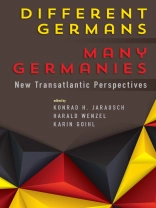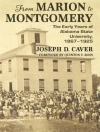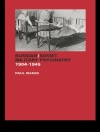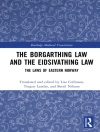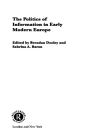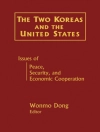As much as any other nation, Germany has long been understood in terms of totalizing narratives. For Anglo-American observers in particular, the legacies of two world wars still powerfully define twentieth-century German history, whether through the lens of Nazi-era militarism and racial hatred or the nation’s emergence as a “model” postwar industrial democracy. This volume transcends such common categories, bringing together transatlantic studies that are unburdened by the ideological and methodological constraints of previous generations of scholarship. From American perceptions of the Kaiserreich to the challenges posed by a multicultural Europe, it argues for—and exemplifies—an approach to German Studies that is nuanced, self-reflective, and holistic.
Tabla de materias
Preface
Karin Goihl
Introduction
Konrad Jarausch and Harald Wenzel
PART I: RESPONSES TO MODERNITY
Chapter 1. A Modern Reich? American Perceptions of Wilhelmine Germany, 1890-1914
Scott H. Krause
Chapter 2. The Dual Training System: The Southwest’s Contributions to German Economic Development
Hal Hansen
Chapter 3. The “German Forest” as an Emblem of Germany’s Ambivalent Modernity
Jeffrey K. Wilson
Chapter 4. Health as a Public Good: The Positive Legacies of Volksgesundheit
Annette F. Timm
PART II: DEMOCRATIC TRANSFORMATION
Chapter 5. Antifascist Heroes and Nazi Victims: Myth-making and Political Reorientation in Berlin, 1945-1947
Clara M. Oberle
Chapter 6. The Pen is Mightier Than the Sword?: Student Newspapers and Democracy in Postwar West Germany
Brian M. Puaca
Chapter 7. Human Rights, Pluralism and the Democratization of Post-War Germany
Ned Richardson-Little
Chapter 8. African Students and Racial Ambivalence in the GDR during the 1960s
Sara Pugach
PART III: SEARCHING FOR A NEW MODEL
Chapter 9. The “German Model” in Renewable Energy Development
Carol Hager
Chapter 10. Germany’s Approach to the Financial Crisis: A Product of Ordo-Liberalism?
Mark K. Cassell
Chapter 11. Dreams of Divided Berlin: Postmigrant Perspectives on German Nationhood in Die Schwäne vom Schlachthof
Jeffrey Jurgens
PART IV: GLOBAL IMPLICATIONS
Chapter 12. Inventing the German Film as Foreign Film: The Origins of a Fraught Transatlantic Exchange
Sara F. Hall
Chapter 13. Atlantic Transfers of Critical Theory: Alexander Kluge and the U.S. in Fiction
Matthew D. Miller
Chapter 14. Nation and Memory: Redemptive and Reflective Cosmopolitanism in Contemporary Germany
Michael Meng
Bibliography
Index
Sobre el autor
Karin Goihl is Academic Coordinator of the Berlin Program for Advanced German and European Studies at the Freie Universität Berlin. She holds an M.A. in North American Studies and Linguistics from the Freie Universität Berlin and has served the Berlin Program since 1998.
